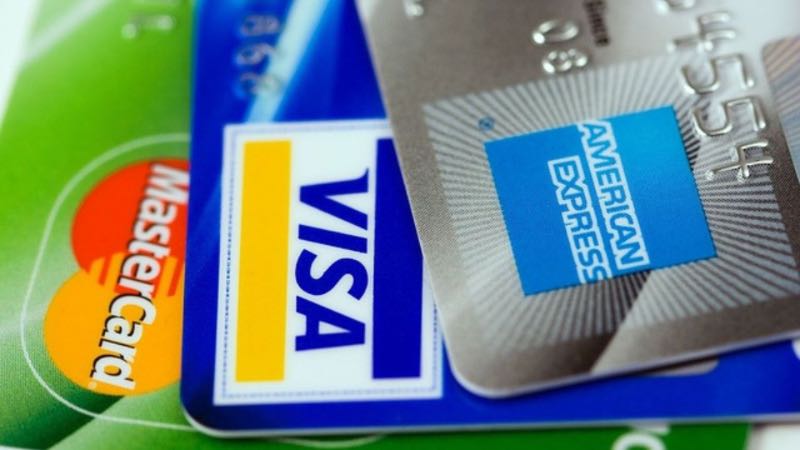Determining the ideal age to acquire your first credit card is a pivotal decision that can profoundly impact your financial future. To make an informed choice, it’s crucial to understand the best timing for this milestone. Read on to discover when the right time to get your first credit card is and how to navigate this significant financial step.
When Should You Get Your First Credit Card?

In the not-so-distant past, university campuses were not just filled with students but also with bank representatives. These financial agents would approach students with enticing offers, often luring them to fill out credit card applications in exchange for gifts or incentives.
Many young adults succumbed to the allure of easy credit and the promise of various perks. However, when the month’s end arrived, they were confronted with the reality of credit card balances and the stark realization that someone had to foot the bill. Consequently, numerous young individuals began their adult lives burdened by debt, a situation that could have been prevented with basic financial education.
Unfortunately, financial literacy was lacking among 18 to 21-year-olds at the time. This scenario started to change with the introduction of the “Credit Card Law” in 2009. Under this legislation, individuals between the ages of 18 and 21 can only obtain a credit card if they can demonstrate their ability to manage the associated financial responsibilities, typically by proving a source of income.
Alternatively, they can have a co-signer who shares responsibility for the card’s expenses. Therefore, as per current legal requirements, individuals under 21 have certain restrictions on obtaining credit cards. Only those aged 21 and above have relatively straightforward access to these financial products.
Can You Get a Credit Card Before Turning 18?
Nevertheless, there are exceptions that allow individuals under 18 to have a credit card. In such cases, these young individuals aren’t directly responsible for the card; instead, they are authorized users of a card owned by someone, often a parent, with an established bank account. The primary account holder is entirely responsible for making payments and managing the card’s balance. Additionally, timely payments made by the primary account holder can positively impact the authorized user’s credit history.
Choosing the Right Credit Card for Beginners

Suppose you’ve determined that obtaining a credit card before turning 21 is the right decision for you. In that case, it’s essential to recognize that not all types of credit cards will be readily available due to your limited credit history. Your eligibility for certain cards isn’t necessarily tied to your age but rather to your creditworthiness. Typically, at age 21, many individuals haven’t yet established a solid credit history.
Consequently, banks may hesitate to extend credit to someone who hasn’t demonstrated their ability to manage financial obligations responsibly. As a result, you will need to select from the following options:
1. Unsecured Credi t Cards
- Unsecured credit cards don’t require a secured deposit from users. Individuals without a strong credit history can apply for a card as an authorized user, with a guarantor who holds an account taking responsibility for payments and balances.
- Alternatively, you can opt for unsecured cards with a co-signer, which means both you and the co-signer share responsibility for payments and balances.
2. Student Credit Cards
- If you are still a college student, a student credit card might be a suitable choice. Some of these cards accept applicants without a guarantor, but they often come with lower credit limits and less attractive rewards programs compared to regular credit cards.
3. Alternative Credit Cards
- Certain banks don’t assess your credit history when deciding whether to issue a card. Instead, they consider other factors such as income and debt levels. These cards are ideal for individuals with limited or no credit history.
4. Secured Credit Cards
- Secured credit cards require an initial deposit, with your credit limit typically corresponding to the amount deposited. These cards are relatively easy to qualify for, making them a popular choice for those with limited credit history.
5. Store Credit Cards
- Some retail stores, like Walmart, offer credit card services. The application process is straightforward, and these cards may be accessible even with limited credit history. However, they often come with restrictions similar to student cards.
Tips for Responsible Credit Card Use

Ultimately, the best age to get a credit card is less about a specific number and more about your level of maturity and financial responsibility. Consider these questions to gauge whether you are ready for a credit card:
- Do you have a sufficient income to cover expenses and potential card fees?
- Do you understand how credit cards work, including fees and benefits?
- Are you responsible with money, avoiding accumulating debt and spending within your means?
- Have you established a budget?
- Are you seeking a credit card to enhance financial management rather than for impulsive spending?
- Do you have an emergency fund?
If you answered “yes” to all these questions, you are likely mature and responsible enough to consider getting a credit card. However, if you responded “no” to any of these questions, it may be advisable to delay your credit card application until you’ve addressed these financial aspects. Building financial maturity and a solid foundation of responsible money management should be your top priority.
Remember, there isn’t a one-size-fits-all answer to the best age to get a credit card. Instead, focus on your financial readiness and ensure that obtaining a credit card aligns with your long-term financial goals and responsible spending habits.









